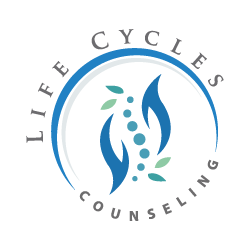Individual counseling in Houston, Katy and Cypress, TX
As the name Life Cycles Counseling implies, just about everyone goes through ups and downs throughout a lifetime. When times are tough, you don’t have to do it alone. Yes, friends and family may be helpful, but a counselor can help you navigate deeper issues, offer solutions, and provide unconditional support without judgment.
Depending on the problems at hand, our counselors offers empathetic listening, coping skills, EMDR, Internal Family Systems, Cognitive Behavioral Therapy, and other modalities to assist in the healing process. We’re here to help, assist, and guide you as you work through the healing journey.
What are some common problems addressed in counseling?
- Depression - Feelings of sadness, hopelessness. Having a hard time functioning with life
- Anxiety - Feeling apprehensive about specific things, or a general sense of worry and dread.
- Addictions - Alcohol, Drugs, Sex, Pornography, Food, and many others.
- Low Self-esteem - A subjective sense of not being good enough or not worthy.
- Anger Management - Inability control one's emotions
- Grief or Loss -Morning the death of a loved one.
- Trauma/PTSD - Having experienced physical/sexual/emotional abuse, or trauma from accidents, hurricanes, or other situations. Some PTSD may occur from trauma that occured over time, not just one incident.
- Relations - Difficulty in relationships with spouse, children, siblings, parents.and others.
- Conflict Resolution - Resolving disageements via dialogue, compromise and mediation
- Person Growth - Working on improvements to be the best version of yourself.
- LGBTQ - We work on a variety of challenges with individuals of all sexual orientations and identity.
- Work stressors - Inability to do to your job at your fullest capacity. Employee conflicts. Job dissatisfaction
- Mental Health management (e.g. Bipolar Disorder)
- Life Transitions - Feeling dissatisfied with where you are in life.
How can therapy help?
- Improve overall wellness – A good therapist can help you identity needed improvements to reach your fullest potential. If your functioning has suffered lately, for example at work, school or in relationship, there is a good chance a counselor can navigate your challenges, identify your strengths and guide you on the path that’s right for you.
- Emotional Support and Understanding – Here at Life Cycles Counseling, we fully believe in unconditional acceptance, compassion and validation. Counseling provides a safe space to verbalize your thoughts and feelings without any fear of judgement.
- Self awareness and Personal Growth – In counseling, we strive for personal growth and knowing oneself to the fullest. The counselor may challenge some of your assertions and habits, but it’s always done with care and as a joint team effort. Ultimately, you set the stage for what you want to accomplish short-term and long-term in life, and the counselor can help you lead the way.
- Problem Solving and Coping Strategies – A part of counseling consists of learning new coping strategies. This may include stress management tools or ways to solve one’s problems. The counselor may also help you see things in a different perspective, which ultimately helps to lessen stress, anxiety and depression.
- Symptom Management and Relief – Clinical Depression, Bipolar Disorder, OCD, and Trauma- just to name a few – are all conditions that are hard to just get rid of on your own. A skillful counselor will help you manage, reduce and in many cases completely eliminate the symptoms you are struggling with.
- Trauma Healing – It’s usually not enough just to “talk about it”. EMDR, IFS and other modalities are essential counseling tools to heal from trauma in a more effective way.
- Improved Relationships – Inevitably, most people that come for counseling suffer from some kind of relationship dissatisfaction. Yes, sometimes it may be hard to get along with people with love and care for. By improving self-awareness of self and others, working on communication skills and learning conflict resolution, a therapist can help you improve relationships in your life.
What are some barriers to counseling?
- Stigma about mental health – Many people may avoid therapy for fear of being judged by others, or their own judgement of being “weak”. Sometimes real cultural stigma contributes to people holding off on seeking help
- Lack of Understanding – If you’ve never done counseling, the process may seem unusual or intimidating. Some are weary of “talking to a stranger” about their problems. Many assume that you just talk about your problems without much input from counselor; others assume that the therapist will tell them what to do or resolve all their problems. None of these extremes paint an accurate picture of what goes on in a counseling session.
- Emotional readiness – While wanting to get better, it takes courage and getting outside your comfort zone to get there. Many individuals hesitate coming to counseling because of fear of change. Others believe they are not capable to talk about their feelings or that they wouldn’t know what to say.
- Lack of time and money – With commitments at work and family, it may seem difficult to find the time to seek counseling on a weekly or bi-weekly basis. For individuals on a very tight budget, it can be difficult to commit to the expenditure or regular therapy sessions.
- Cultural and language barriers – Sometimes people fear that the counselor is not going to understand their cultural background or language. There can also be a distrust in professional and a cultural expectation that one should figure things out by yourself or within one’s family.
- Confidentiality – Some worry that their information will be breached and others will find out about their personal details.
How does Life Cycles Counseling reduce barriers to counseling?
- We strive to be sensitive to client’s concerns and hesitations. Fortunately, going to a therapist has become much more acceptable. Recently, we have seen an uptake in clients from all sorts of cultures and socioeconomic status as many feel more at ease about seeing a counselor. We often compliment clients that come in for having the courage to seek out help.
- Most clients quickly realize that talking to a neutral party can have many benefits compared to sharing things with family. Our counselors are skilled at explaining the process, developing a treatment plan and working towards your goals. The counselor is skilled at using techniques and coping skills that are fitting for the client, for example CBT, DBT, IFS, EMDR and Solutions Focused Therapy.
- Most clients do not start off as experts talking about their emotions. It’s a skill that can relatively easy be learned and practiced in session. It is true that a client ultimately must be ready to make a change – no matter how good of a counselor you are seeing, he/she will not “make” you better without your readiness to discuss problems, follow up on homework, go a little outside your comfort zone and so on.
- Our opening hours and fee schedule is designed to fit most people. We have counseling associates that can see clients on a reduced fee, and we are open some evening and weekends, depending on the counselor and location (we have a location in Katy and one in West Houston).
- Our counselors speak several different languages (Read their bio here). We also collaborate with other counseling centers if you speak a language that we can not accommodate.
- We take confidentiality seriously and abide by all state laws. There are some limits to confidentiality, as outlined in HIPPAA.
What to expect from therapy
In the first session, the counselor will spend some time listening to things you would like to talk about. Typically this will be the presenting problem(s), how it started and some background information. Some clients are eager to describe some past experience growing up, but this is not a must. It’s okay to take it slowly and ‘ease’ into a good working relationship with the therapist.
As time progresses, the counselor will ask you more prompting questions and start assessing your situation. Problem solving may occur if things can be fixed with an insight or suggestion; other times, the counselor focus on validating your story and forming on opinion on goals for treatment. This will always be discussed as this is a joint effort between you as the client and the counselor. The idea is that you are the expert of you, and with the right guidance and tolls, you can work towards and achieve the best version of yourself.
No two counseling session are the same are there are many variations of the first few sessions. Depending on the counselor and your needs, we may utilize strategies such as Cognitive Behavioral Therapy, Internal Family Systems Model, and EMDR. Regardless of the model and tools, the counselor always strives to be present in the session and provide an unconditional acceptance of you. It does not mean that all your behaviors get a free pass; in fact, much of counseling involves the therapist challenging potential unhealthy behaviors and learning how to live your life as close to your authentic self as possible.
Our therapists can help
As the owner and the most experienced counselor of over 20+ years, Marcel brings a myriad of knowledge, tools and compassion in helping his clients. Our other counselors are trained in various modalities and specialties, for example Gottman for couple’s therapy and CBT for depression. If you’re not sure who might be the best fit, feel free to schedule a free 15 minute consultation with Marcel Gamboa.
The fact that you reading this, shows that you have taken the first important step toward the healing journey. Choosing the right counselor can be daunting, but help is closer than what you might realize. If you have further questions, or if you are ready to schedule an appointment with one of the therapists at Life Cycles Counseling, please give us a call (281-299-8607) or use the online portal request.

